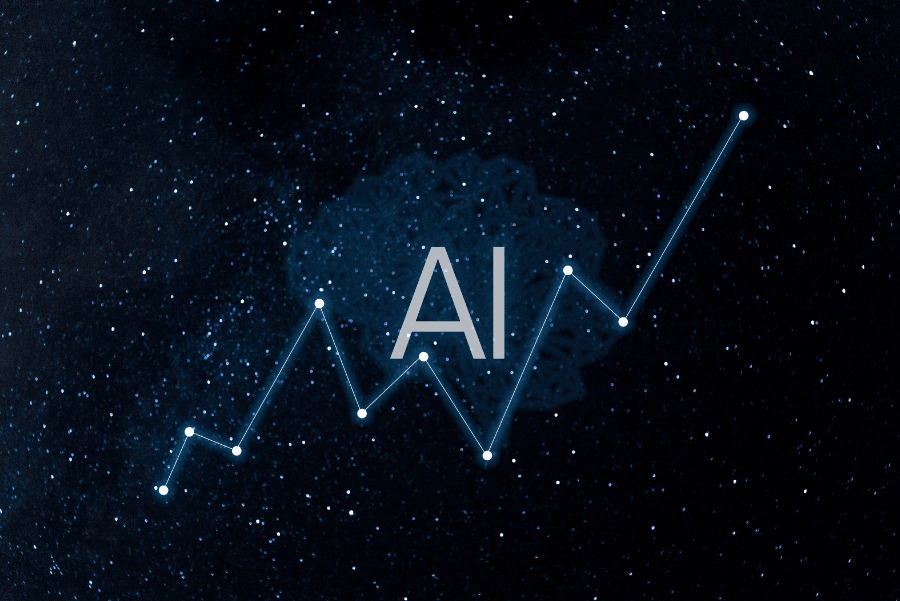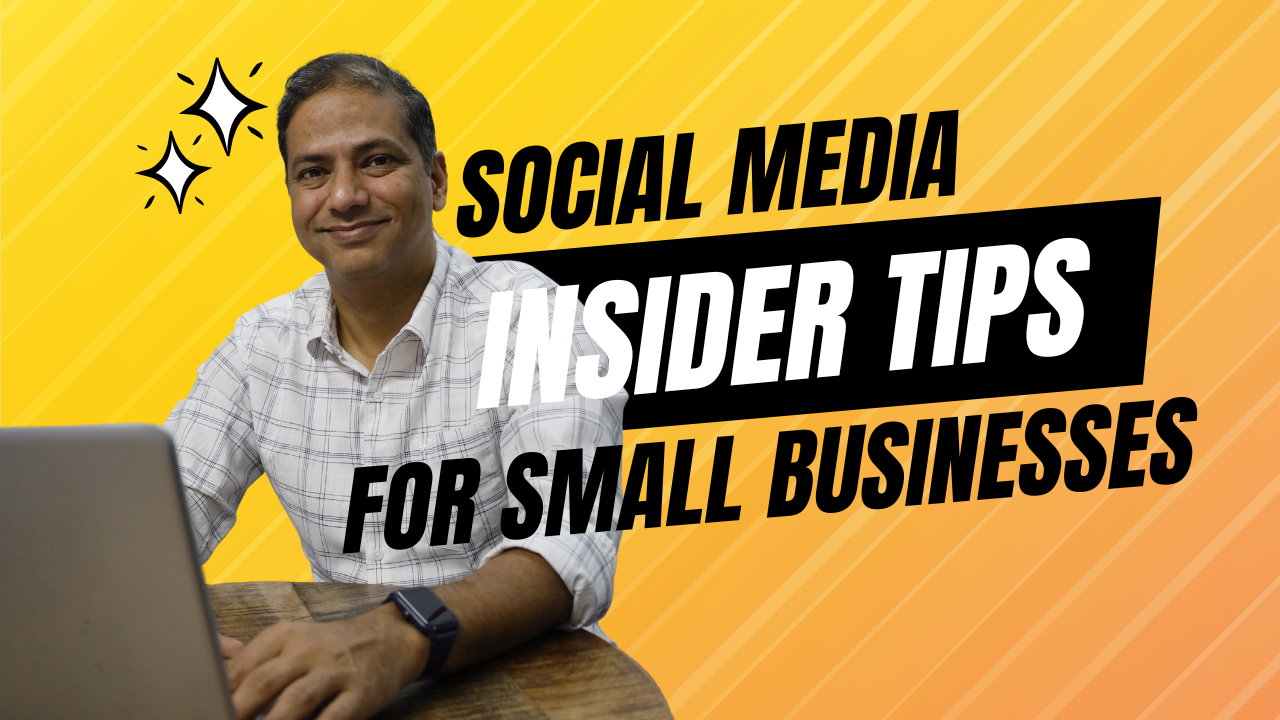Benefits of Artificial Intelligence and Machine Learning

Integrating AI and Machine learning in marketing strategy is a trend that’s happening right now. It’s not just about the technology—it’s about the power of these two things for marketers.
The best marketing strategies in the world are still out there, waiting for you to discover them. But one of the things that’s holding you back is your outdated approach to marketing. If you want to take your business to the next level, it’s time to ditch the old ways and embrace some new ones.
The Role of AI and machine learning in Marketing Strategy
Direct action does not result in any successful business outcomes. High Return on Investment necessitates strategic plan implementation and plans cannot be established in a hasty manner without careful investigation. However, manually conducting this study would take a lot of time. Here artificial intelligence (AI) and machine learning come into the picture.
Machine learning models can automate customer service, improve ad targeting, and forecast consumer behavior. Similarly to this, AI-powered algorithms can improve pricing methods, personalize marketing efforts, and segment clients more precisely. AI chatbots improve the consumer experience by giving prompt, individualized responses.
Customer feedback and sentiment are analyzed with the aid of natural language processing. Simply said, AI and machine learning enable marketers to make data-driven decisions, enhance customer interaction, and provide better campaign results, thus improving marketing as a whole.
Benefits of AI and machine learning: How AI and machine learning can enhance your marketing strategy
Imagine a hectic marketing department that is attempting to make sense of piles of data. Sunaina, a seasoned marketer out to expand the boundaries of her approach. She looks to the capabilities of AI and machine learning as she realizes the need for a game-changer.
By entering data history into an AI machine, Sunaina starts her adventure. The algorithm works like a detective, finding hidden patterns and providing insightful information. It demonstrates that clients who buy product A are more likely to be interested in buying product B, which gives Sunaina an excellent idea.
With this insight, Sunaina customizes her marketing initiatives and fits them to particular customer groups. She develops interesting content and refines her messaging with AI’s assistance, connecting with each consumer more deeply. The outcomes are astounding: conversion rates soar, engagement rates increase and customer satisfaction levels improve simultaneously.
She, however, doesn’t stop there. She uses the capabilities of AI chatbots to offer prompt assistance, precisely and empathetically responding to customer inquiries. The client experience is improved by these chatbots, which continuously improve their responses as a result of learning from each contact.
Machine learning models intervene as Sunaina’s plan changes. They forecast customer behaviour, perform real-time data analysis, and enhance ad targeting. Sunaina is astounded by how her advertisements maximize her marketing budget by reaching the correct people at the right time.
Sunaina uses sentiment analysis and natural language processing to harness the power of client feedback. She obtains priceless knowledge about client preferences, problems, and new trends, which enables her to quickly and successfully change her strategy.
In this marketing escapade, Sunaina’s company prospers as AI and machine learning change her approach. Her brand is successful because of data-driven decisions, tailored experiences, and effective marketing efforts. Sunaina is now aware that AI is a game-changer that takes her marketing strategy to new heights after being inspired by the potential.
- Personalization and Targeting – AI and machine learning can assist marketers in personalizing content and focusing on target audience by analysing user data, thereby increasing engagement and conversion rates.
- Improved ROI – By providing data-driven insights and predictive analytics, AI and machine learning can assist in optimizing marketing campaigns, cutting costs, and boosting return on investment (ROI).
- Enhanced Customer Experience – Chatbots and virtual assistants powered by AI can provide round-the-clock customer support, enhancing the customer experience and boosting satisfaction.
- Automated Marketing Processes – AI and machine learning can automate marketing tasks like lead scoring, content creation, and email marketing, freeing up valuable time for more strategic endeavours.
Challenges of AI and Machine Learning: The potential pitfalls and Challenges of Integrating AI and machine learning into your marketing strategy
- AI algorithms heavily rely on the accuracy of the data. A choice or insight can be erroneous as a result of inaccurate or biased data. In order to maintain integrity, make sure the data are clean and deal with any biases.
- AI-powered marketing poses ethical questions about things like privacy, transparency, and algorithmic fairness. Consider regulatory compliance while handling customer data, and do it with care.
- Continuous learning and adaptation are necessary for AI models to remain up to date. Models may become stale because of how often the marketing environment changes. To retain efficacy, continue to be proactive in improving and retraining models.
- AI enhances but does not totally replace human capabilities. Create an atmosphere where marketers and AI technologies can cooperate. Effective marketing tactics are still mostly developed through human intuition and imagination.
- AI systems frequently make difficult-to-understand complex judgments. To earn the trust of stakeholders, it is crucial to comprehend and explain the logic behind AI-driven marketing campaigns.
Best practices: Tips for successfully integrating AI and Machine learning into your marketing strategy
- Define specific goals- Outline your marketing objectives and how AI and machine learning can help you achieve them. To ensure coherence and efficacy, integrate AI projects into your whole marketing plan.
- Begin with reliable data- Make sure the data you use to train your AI models are accurate, trustworthy, and relevant. AI algorithm effectiveness and accuracy are directly impacted by the quality of the data.
- Choose the appropriate use cases- Determine which elements of marketing, such as consumer segmentation, Customised suggestions, predictive analytics, or automated content development, can benefit most from AI and machine learning.
- Work together with professional– Include machine learning engineers, AI experts, and data scientists in the process. You may build and implement efficient AI solutions that support your marketing objectives by working with specialists.
- Choose the appropriate use cases- Determine which elements of marketing, such as consumer segmentation, personalized suggestions, predictive analytics, or automated content development, can benefit most from AI and machine learning.
- Work together with professionals– Include machine learning engineers, AI experts, and data scientists in the process. You may build and implement efficient AI solutions that support your marketing objectives by working with specialists.
- Test and iterate- Before scaling up AI initiatives, put them into controlled experiments or small-scale pilots. Continuously track and assess the performance of AI models, and iteratively modify them in response to immediate feedback and outcomes.
- Make sure there is openness and compliance– Keep your AI-driven marketing operations transparent, especially when it comes to the acquisition, use, and personalization of data. Comply with applicable ethical standards and data protection laws.
- Collaboration between AI and marketing team-Foster cooperation and communication between the marketing and AI teams to close the communication gap. To efficiently utilize the capabilities of both domains, promote knowledge sharing and cross-functional understanding.
- Invest in continuing education and training– Stay current on AI and machine learning developments. Give marketers training and development opportunities to improve their knowledge of AI technology and how to use them in marketing.
- The balance between human touch and automation– While AI may automate monotonous operations and procedures, it’s important to maintain a balance between automation and human touch when developing marketing strategies and user experiences.
- Monitor regularly- Keep track of results and impacts of AI-driven marketing campaigns, then adjust as necessary. Stay flexible and adaptable, making the appropriate changes in response to new information and market shifts.
In conclusion, there is a wide range of opportunities created by the incorporation of AI and machine learning into marketing initiatives. AI empowers marketers to achieve unprecedented success by delivering personalized experiences and making data-driven decisions
Businesses may discover important insights, automate procedures, and provide excellent customer experiences by utilizing AI algorithms and machine learning models. However, it’s crucial to manage the potential difficulties, guaranteeing data quality, taking ethical issues into account, and encouraging human-machine collaboration.
Marketers can fully utilize AI to drive development and achieve extraordinary results by adhering to best practices and remaining flexible. Accept the power of artificial intelligence (AI) and machine learning, and watch your marketing plan soar to new heights. Marketing is already in the future, and AI is driving it.





